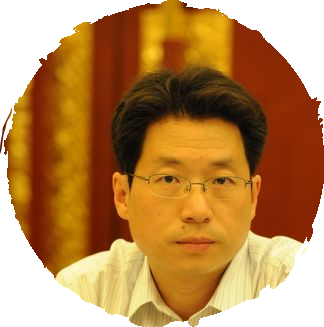



Professor Haiming Wen received his Ph.D. in comparative philosophy from the University of Hawaii in 2006. He is now a professor at the School of Philosophy, Renmin (People’s) University of China (RUC), The Beijing Center (TBC, since 2007), Yeching Academy (YCA, since 2015). He was previously a post-doctoral fellow (2006-12) and Master’s student (1996-99) in the Department of Philosophy, Peking University. He has published the books Making One’s Intentions Concrete: Dimensions of Confucian Ethics (RUC Press, 2014), Confucian Pragmatism as the Art of Contextualizing Personal Experience and World (in English: Lexington, 2009), and Chinese Philosophy (in English: Cambridge University Press, 2012; in Chinese: China International Press, 2010). He has also published more than 50 journal articles in both English and Chinese, including more than 10 articles in English peer-reviewed journals like Asian Philosophy, Journal of Chinese Philosophy, Dao: A Journal of Comparative Philosophy, Contemporary Chinese Thought, Culture and Psychology, Frontier of Chinese Philosophy, etc. He has been selected as one of the New Century Excellent Talents (NCET) by the Chinese Ministry of Education in 2010, and one of the Ming De Scholars of RUC. He is the secretary-general, and Director of Research for International Association of Yijing (the Book of Changes) Studies. He is a member of the Advisory Editorial Board of the journal Asian Philosophy, and was the Associate Editor-in-Chief for the English Journal Frontiers of Philosophy in China, and editor-in-chief for the “International Studies on Chinese Philosophy” series for Peking University Press. He has been invited to present more than 50 papers in more than 20 countries all over the world.
Together with Buddhist and Confucianism, Daoism played an important role in the forming of Chinese civilization. While as the only indigenous religion among the three, Daoism is hard to define. It permeated almost every aspect of Chinese life, from the imperial court, upper class to the beliefs and customs of the lower class; from pre-modern era to the 21st century China. In each stage of its development, Daoism linked closely with politics, art, natural science and social life of the Chinese people and society
Starting from Laozi and his Tao-te Ching, the most translated work in world literatures besides the Bible, the main goal of the course will be to understand various aspects of Daoism and familiarize the students with the theological and ritual foundations of Daoism. The founding, development, and modernity of Daoism will be introduced to the students. Besides, one field trip, one classroom dialogue with a Daoist and one movie discussion will also be included. The course concludes with reflections on the nature of Daoism and the way it has been perceived and interpreted by modern scholars and common people.
